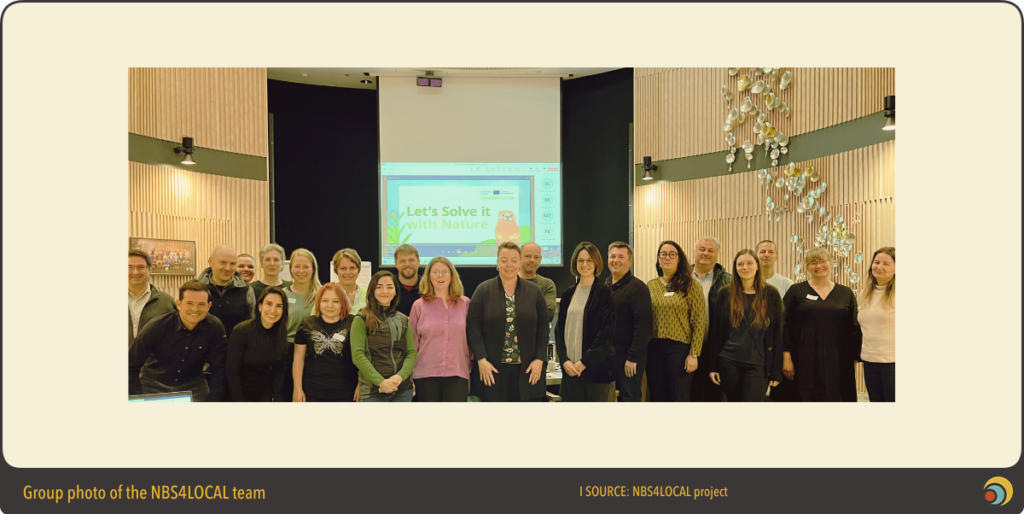An Interreg Europe Project to Mainstream Nature-Based Solutions
NBS4LOCAL, an Interreg Europe project that BURST is part of, has reached a major milestone recently. This is a great opportunity to summarise what our project has achieved so far and what is next in our work.

This project, led by the Hungarian Ministry of Public Administration and Regional Development, focuses on prompting nature-based solutions (NBSs) as an integral part of local and regional climate policies. The project also involves Belgian, Finnish, Polish, Spanish and Croatian partners.
As this is a new and innovative area, it is especially clear that we can have more effective policies that can stimulate the spread of NBS all across Europe. NBS works best when systemic. Therefore, cooperation with key stakeholders is a major aspect of the project. This is further strengthened by a bottom-up approach, resulting in policies embedded in the local social, political and environmental contexts. Finally, the project aims to support NBS interventions through improved policy planning, financing, and monitoring.
In the first stage of the project, we focused on analysing partners’ local contexts. This consisted of mapping existing good practices and evaluating existing policy instruments. To deliver this task and in line with the bottom-up ethos of NBS4LOCAL, at the beginning of this stage, local stakeholder groups were set up. Local learnings were brought together in an interregional meeting, where conclusions were drawn. These were documented into NBS good practice maps and a toolbox that will aid partners in overcoming their challenges in the next stage.
This stage, starting now, will focus on the enhancement of policy environments in order to support NBS interventions. In this phase, challenges and good practices uncovered in stage 1 are matched between partners. Then, partners engage in a peer review process to exchange their good practices and find common solutions to solve their challenges. (The first round of peer review already happened in May in Finland.) Each region will host a peer review and will visit at least two other regions. By the end, by the knowledge gained and the good practices taken over, we expect our partners to have significantly improved policies.
This way, partner regions can learn from the good practices of others and work together on joint challenges. By the end of the project, partner regions will be better equipped to deliver NBS solutions that will make our regions not only greener, but more attractive too.
